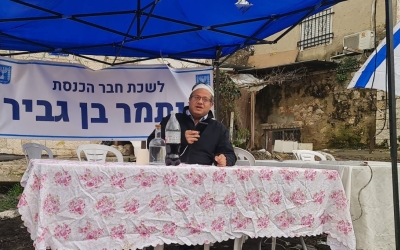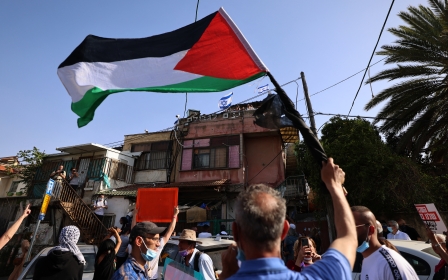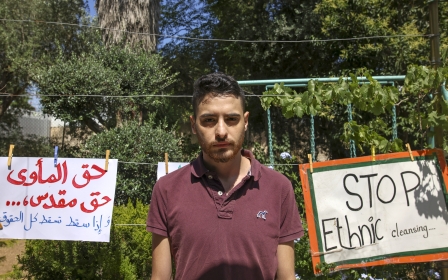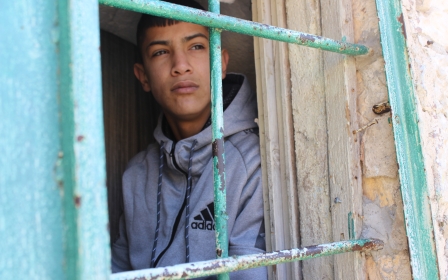Israel blocks Palestinians from travelling to East Jerusalem
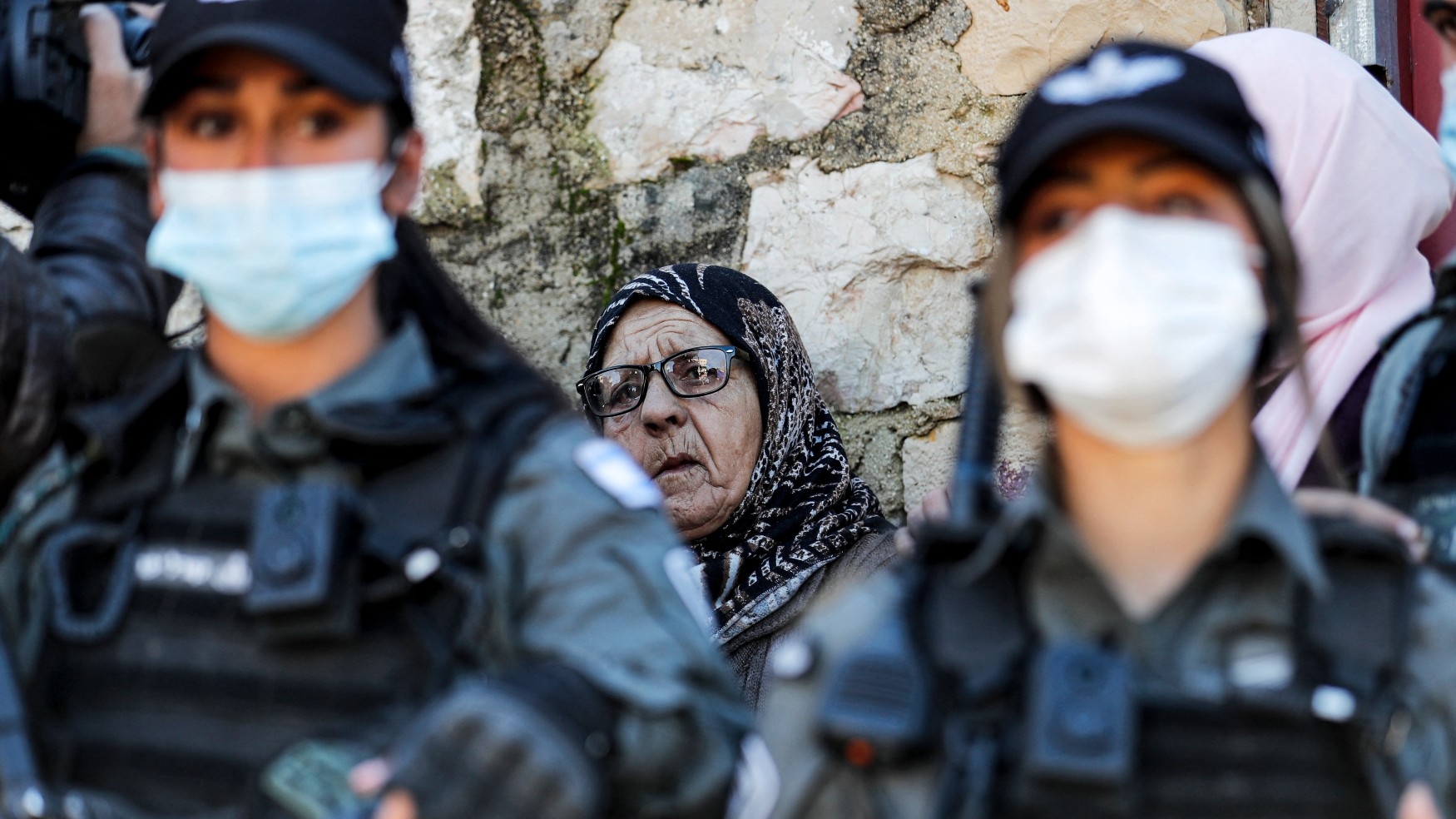
Israeli intelligence and security forces have threatened and prevented Palestinian citizens of Israel and Palestinians from the occupied West Bank from reaching the East Jerusalem neighbourhood Sheikh Jarrah.
Israeli forces stopped vehicles and barred entry to tens of Palestinians at the Nilin military checkpoint, west of Ramallah, and blocked their way to Sheikh Jarrah and al-Aqsa Mosque to perform Friday prayers.
Palestinian citizens of Israel, who had planned to travel in a bus convoy on Friday to show solidarity with the residents of Sheikh Jarrah facing eviction orders, have received messages from Israel's internal intelligence agency telling them not to go ahead with their plans.
On Thursday evening, the Shin Bet sent warning messages to Palestinians from Umm al-Fahm, a town inside Israel. Bus owners and drivers who had registered their names to travel to East Jerusalem were among those to receive the messages.
New MEE newsletter: Jerusalem Dispatch
Sign up to get the latest insights and analysis on Israel-Palestine, alongside Turkey Unpacked and other MEE newsletters
On Friday, Palestinians performing prayers in Sheikh Jarrah were led by Ekrima Sabri, a prominent imam who has been detained several times by Israel and was at the forefront of the face-off with Israeli forces who stormed al-Aqsa Mosque last year.
The latest development comes as Israeli settlers remain intent on evicting Palestinian families from their homes in Sheikh Jarrah, a neighbourhood less than two kms from the northern walls of Jerusalem's Old City.
On Friday morning, far-right Israeli Knesset member Itamar Ben-Gvir arrived at a makeshift office he had set up in the area, outside the home of a Palestinian family facing imminent expulsion.
Ben-Gvir, head of the Jewish Power party, has since Sunday refused to dismantle his makeshift office, provoked and clashed with Palestinians, and assaulted an Israeli police officer.
Settlers had helped Ben-Gvir install the office on a plot of land over which the Palestinian family Salem claims ownership. Settlers have attempted to fence it off and seize it several times.
Forced evictions
On Friday, representatives from the United Nations and Palestinian civil society visited Sheikh Jarrah to meet the Salems, a family of 12 people, six of whom are children.
"The Salem family itself and their neighbours have been subject to attacks with pepper spray and stones resulting in injury and property damage," a statement released by the UN Office for the Coordination of Humanitarian Affairs (OCHA) said.
'Under international humanitarian law, forcible transfers of protected persons by the occupying power are forbidden regardless of their motive'
- United Nations
OCHA added that the Salem family "is one of 218 Palestinian families, comprising 970 individuals, including 424 children, living in East Jerusalem, mainly in the neighbourhoods of Sheikh Jarrah and Silwan, that are currently facing the threat of forced eviction by the Israeli authorities."
It added that the family were refugees who lost their homes in the 1948 war that led to the establishment of Israel.
"The United Nations has repeatedly called for a halt to forced evictions and demolitions in the occupied West Bank, including East Jerusalem: under international humanitarian law, forcible transfers of protected persons by the occupying power are forbidden regardless of their motive," it added.
Israeli security analysts believe that clashes in Sheikh Jarrah could escalate to engulf the whole of the West Bank and could reach inside Israel and the Gaza Strip.
Sheikh Jarrah, which was occupied by Israel in 1967, has been a significant flashpoint since May 2021, after Israel tried to expel Palestinian families from the area to make way for Israeli settlers.
This prompted widespread protests across the occupied West Bank and the Palestinian community inside Israel, as well as a large-scale military operation in the besieged Gaza Strip.
Middle East Eye delivers independent and unrivalled coverage and analysis of the Middle East, North Africa and beyond. To learn more about republishing this content and the associated fees, please fill out this form. More about MEE can be found here.


